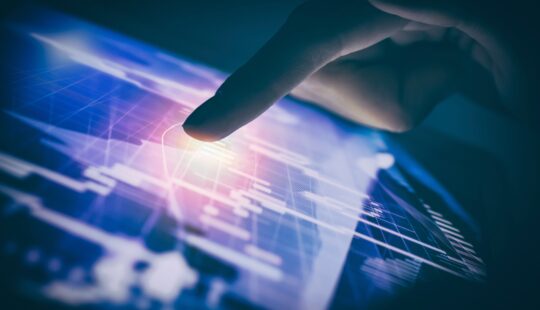WALLDORF — SAP SE (NYSE: SAP) today announced that to automate and speed up contact tracing after a COVID-19 case is confirmed, a local health department in southern Germany is using a cloud-based Web application developed by SAP, which went live on April 10, 2020.
Each week, physicians in Germany test around 400,000 people for COVID-19, according to the Robert Koch Institute. If a test is positive, the physician has to inform the patient and the local health department. Pursuant to the provisions of the German Protection Against Infection Act, the local health department is then required to record the details of every person who has had close, face-to-face contact with the patient in the past two weeks.
“Tracing the people who have come into contact with a COVID-19 patient is a huge task; having an IT solution will make it much simpler,” says Roland Bernhard, chief administrative officer for the district of Böblingen in southern Germany, of the successful collaboration between the district’s local health department and SAP. “The processes have been streamlined for the municipal and district administration offices, which ultimately helps prevent the virus from spreading.”
The people identified as having been in close proximity to a COVID-19 patient now receive an e-mail from the local authority in Böblingen containing a link to the Web application developed by SAP. After just one click, they can enter the required data from any device. But to do so, they must consent to their data, pursuant to the German Protection Against Infection Act, being used, processed, and sent — in anonymized form — to health institutions, such as the Robert Koch Institute, for inclusion in statistics, for example. Other advantages of the system include, for instance, that vulnerable people are notified faster and can therefore take appropriate action, such as going into isolation, sooner. And the app frees up the employees at the local health department for other, more important tasks.
The local health department for the district of Böblingen initiated the project by reaching out to SAP. The SAP team was happy to help and together, they quickly finetuned the idea. The new software, which runs on SAP Cloud Platform, went live at the district administrator’s office in Böblingen early on April 10, 2020. By leveraging SAP Cloud Platform, no time needed to be spent looking at hardware or other IT requirements. Because the solution supports multitenancy, its use could be extended to all of Germany’s approximately 400 health departments. And the solution will remain relevant once the coronavirus pandemic ends: Physicians are also required to report cases of other infectious diseases, such as measles, meningitis and salmonella, in Germany to prevent other outbreaks.
For more information, please visit the SAP News Center. Follow SAP on Twitter at @SAPNews.
Media contact:
Dana Roesiger, +49 (0) 6227 63900, dana.roesiger@sap.com, CET
SAP Press Room; press@sap.com
Any statements contained in this document that are not historical facts are forward-looking statements as defined in the U.S. Private Securities Litigation Reform Act of 1995. Words such as “anticipate,” “believe,” “estimate,” “expect,” “forecast,” “intend,” “may,” “plan,” “project,” “predict,” “should” and “will” and similar expressions as they relate to SAP are intended to identify such forward-looking statements. SAP undertakes no obligation to publicly update or revise any forward-looking statements. Such statements reflect our current views and assumptions and all forward-looking statements are subject to various risks and uncertainties that could cause actual results to differ materially from those statements. The factors that could affect SAP’s future financial results are discussed more fully in our filings with the U.S. Securities and Exchange Commission (SEC), including the most recent Annual Report on Form 20-F filed with the SEC. The future-oriented statements reflect the point of view at the time they were made. Readers are cautioned not to place undue reliance on these forward-looking statements.
© 2020 SAP SE. All rights reserved.
SAP and other SAP products and services mentioned herein as well as their respective logos are trademarks or registered trademarks of SAP SE (or an SAP affiliate company) in Germany and other countries. For more information about the trademarks, copyrights, and their usage, see https://www.sap.com/corporate/en/legal/copyright.html.



